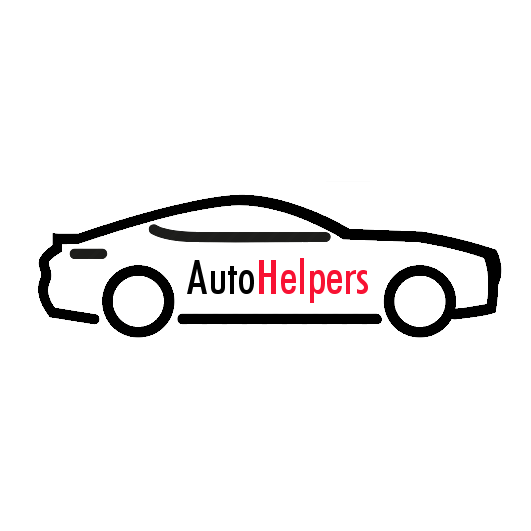Blog Categories
- Appliances Four
- Athletic Seating
- Auto Helpers
- Automated Stock Rooms
- Chocolate Four
- CuraFlo
- Damaged Goods Dating
- Flood Insurance Four
- Game Addict
- Hi Tech Pest Control
- HVAC Four
- Medical Labels Four
- Mental Health Four
- National CWS
- Promotional Ideas
- Seguros Lara Insurance
- Stem Cell Worx
- The Hidden Truth
- The Last Refuge
- The Mozilla Blog
- Video Editing Four
- Web Design Dev
- Website Development Four
- Windows Blog
Why Hasnt Big Auto Caught Up To Tesla?

Prior to the rise of Tesla, conventional wisdom held that it would be practically impossible for a startup company to challenge the behemoths of Big Auto. When economics professors explained the concept of barriers to entry, the auto industry was usually example #1. Selling cars in volume requires not only massive industrial resources, but a highly complex supply chain and dealer network, so a startup couldn't possibly compete.
Events have shown that that model wasn't valid, or perhaps it would be more accurate to say that it was no longer valid, considering the growing importance of software and technology in the auto industry. In retrospect, Tesla was in the right place at the right time with the right idea. Lithium-ion battery tech had just advanced to the point that a high-performance EVhad become viable; the Tesla team wisely opted to build a sexy hot rod instead of a small, sensible gas-saver, and perhaps most importantly of all, the company benefited from an amazing pool of talent and several enormous slices of good luck.
All this explains Tesla's initial success with the Roadster, and later with Model S. But there's another conundrum that's still causing auto industry observers to scratch their figurative heads. Once Tesla had showed what was possible, why didn't Big Auto muscle its way into the EVspace and bury the upstart? Even some of Tesla's founders expected that to happen within a few short years.
Why did it take so long for the dinosaurs to notice the furry mammal scurrying under their feet? Why was the Roadrunner able to blacken the Coyote's face with TNT so many times? How many pop culture metaphors must we journalists employ before someone comes up with a satisfactory answer to this important question?
What does hydrodynamics have to do with cars? Well, let's consider force as a metaphor for EVmarket share, while mass stands for the amount of resources available and acceleration represents the speed at which an automaker develops its EVprogram. Obviously, the giant legacy automakers could bring a lot more force to bear on the problem of electrification, but wee Tesla has consistently applied much more acceleration.
To be clear, the technical challenge of building a practical EVwas never really the issue. GM's EV1 was no Model S, but it was a viable vehicle that could have been a good first step in an iterative process leading to a commercially viable product. However, GM elected to cancel the program, and didn't work on E.V.s for a decade. Other legacy automakers have dithered at varying rates. By now, just about every one of them has brought at least one E.V. to market, and some of these have been excellent vehicles. Any of these firms could have done so much earlier, and much faster, had they chosen to devote more capital and technical expertise, both of which they had, and have, in plenty, to the problem. It wasn't the technical ability that was lacking, it was the motivation.
The old-line companies are like hulking Hummers creeping along the shoulder, with the driver's foot off the gas, Tesla is like a tiny Roadster in the passing lane with the pedal to the metal.
There's no physical reason that one or more of the more forward-looking automakers can't eventually rival Tesla's EVmarket share. They just need to step on the accelerator pedal. There are signs that at least a couple of them are getting ready to do so. VW,GM, Daimler, Hyundai and others are converting factories to EVproduction, securing supply chains, building out charging infrastructure, and diverting resources from yesteryear's technologies.
Make no mistake, we love Tesla's vehicles, and whatever happens, they'll always have a certain mystique. But it's not healthy, for the environment, the auto industry, or consumers, for one company to continue to dominate the EVmarket. It's time for the rest of the world's automakers to put the hammer down!
Source: Re-posted and Summarized from Charles Morris at evannex.
My Take: The problem is that the other OEMs do not have Elon. Without Elon, they don not have a chance.
Re Posted From: Why Hasnt Big Auto Caught Up To Tesla?

Prior to the rise of Tesla, conventional wisdom held that it would be practically impossible for a startup company to challenge the behemoths of Big Auto. When economics professors explained the concept of barriers to entry, the auto industry was usually example #1. Selling cars in volume requires not only massive industrial resources, but a highly complex supply chain and dealer network, so a startup couldn't possibly compete.
Events have shown that that model wasn't valid, or perhaps it would be more accurate to say that it was no longer valid, considering the growing importance of software and technology in the auto industry. In retrospect, Tesla was in the right place at the right time with the right idea. Lithium-ion battery tech had just advanced to the point that a high-performance EVhad become viable; the Tesla team wisely opted to build a sexy hot rod instead of a small, sensible gas-saver, and perhaps most importantly of all, the company benefited from an amazing pool of talent and several enormous slices of good luck.
All this explains Tesla's initial success with the Roadster, and later with Model S. But there's another conundrum that's still causing auto industry observers to scratch their figurative heads. Once Tesla had showed what was possible, why didn't Big Auto muscle its way into the EVspace and bury the upstart? Even some of Tesla's founders expected that to happen within a few short years.
Why did it take so long for the dinosaurs to notice the furry mammal scurrying under their feet? Why was the Roadrunner able to blacken the Coyote's face with TNT so many times? How many pop culture metaphors must we journalists employ before someone comes up with a satisfactory answer to this important question?
What does hydrodynamics have to do with cars? Well, let's consider force as a metaphor for EVmarket share, while mass stands for the amount of resources available and acceleration represents the speed at which an automaker develops its EVprogram. Obviously, the giant legacy automakers could bring a lot more force to bear on the problem of electrification, but wee Tesla has consistently applied much more acceleration.
To be clear, the technical challenge of building a practical EVwas never really the issue. GM's EV1 was no Model S, but it was a viable vehicle that could have been a good first step in an iterative process leading to a commercially viable product. However, GM elected to cancel the program, and didn't work on E.V.s for a decade. Other legacy automakers have dithered at varying rates. By now, just about every one of them has brought at least one E.V. to market, and some of these have been excellent vehicles. Any of these firms could have done so much earlier, and much faster, had they chosen to devote more capital and technical expertise, both of which they had, and have, in plenty, to the problem. It wasn't the technical ability that was lacking, it was the motivation.
The old-line companies are like hulking Hummers creeping along the shoulder, with the driver's foot off the gas, Tesla is like a tiny Roadster in the passing lane with the pedal to the metal.
There's no physical reason that one or more of the more forward-looking automakers can't eventually rival Tesla's EVmarket share. They just need to step on the accelerator pedal. There are signs that at least a couple of them are getting ready to do so. VW,GM, Daimler, Hyundai and others are converting factories to EVproduction, securing supply chains, building out charging infrastructure, and diverting resources from yesteryear's technologies.
Make no mistake, we love Tesla's vehicles, and whatever happens, they'll always have a certain mystique. But it's not healthy, for the environment, the auto industry, or consumers, for one company to continue to dominate the EVmarket. It's time for the rest of the world's automakers to put the hammer down!
Source: Re-posted and Summarized from Charles Morris at evannex.
My Take: The problem is that the other OEMs do not have Elon. Without Elon, they don not have a chance.
Re Posted From: Why Hasnt Big Auto Caught Up To Tesla?

